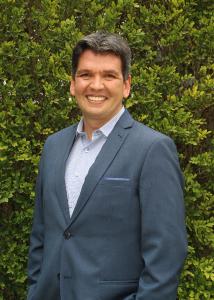Event reports
The welcome speech was given by Olaf Jacob, the Representative from the Konrad Adenauer Foundation in Argentina; Christian Hübner, Director of the EKLA-KAS Program; Philip Krakau, CEO of GLB and Federico Thielemann, Deputy General Director of the AHK (Argentinian-German Chamber of Commerce and Industry).
The initial presentation was given by Manuel Albaladejo, Representative for Uruguay, Argentina, Chile and Paraguay from UNIDO (United Nations Industrial Development Organization), who stated the importance of industrialization and productive transformation at the global scale and in Latin America; and the relationship between industrialization and energy efficiency (the so-called "circular economy" and industry 4.0) for the development of the region in order to achieve objective 9 from the Sustainable Development Goals (SDGs).
Latin America is currently undergoing isolated industrialization processes. There are still many economies that depend on the export of raw materials. However, there are great possibilities for "taking off" toward an industrialized economy that can put it in the race together with more developed economies, such as those from East Asia or Europe, for which, aside from exploiting efficiently the resources, it must increase the preparation of professionals in technical areas (in mechanics and electronics, mainly) in order that they be key pieces in this development. Industrialization (always under the paradigm of sustainability and energy efficiency), aside from being the engine for economic growth, it would allow a greater insertion into the global economy through productive specialization, the improvement of the living standards of the populations and caring for the environment.
The second day started with the presentation by Andrea Heins, Sub-secretary of energy savings and efficiency from the Ministry of Energy and Mines of Argentina. Energy efficiency is transversal and fundamental in all activities. Therefore, it is incumbent upon all productive sectors to implement the necessary measures, with their own characteristics (atomization, labeling, etc.) and without hindering the scope of action of other institutions, in order to achieve significant advances in energy efficiency, we must set reachable goals so that later we may expand the vision, for example, comparing our achievements with those of neighbor countries, instead of countries from the first world, such as Germany. The energy efficiency achievement in Argentina is not only of importance in terms of economic savings and the improvement of the processes but also in order to fulfill the NDCs ratified by the Government, since 32% of the mitigation measures in Argentina correspond to that activity.
Later, the first speakers' panel presented the challenges in the hydrocarbons sector, where Gustavo Albrecht, from Wintershall Argentina, and Santiago Sajaroff, from YPF S.A., gave a brief presentation of their companies, mentioning the high quality standards in their processes and in terms of environmental management. Argentina has a great natural gas reserve in "Vaca Muerta", enough to cover the internal demand for energy and to represent a potential for export for many years. The panel was completed by Manuel Galup, Legal Vice-President of SNMPE (National Society for Mining, Oil and Energy of Peru), who commented on the situation of hydrocarbons in Peru within the Latin American context, the impacts suffered by the Peruvian economy due to the low price of hydrocarbons and the projections for investment and growth in this sector. It is worth mentioning that a common denominator in the speeches was that, currently, every hydrocarbons extraction project that does not comply with high environmental and social responsibility standards is not viable.
In the second and third panels, the speeches by Andreas Ziolek, from Energy Engineers GmbH, Elmar Wimmer, from Eco Mondia Green Technology and Horacio Fortunato, from Schneider Electric GmbH, demonstrated that energy efficiency combined with the digitization and systematization of the productive processes (business-related) and residential (heating and air conditioning, for example) result in huge savings in costs for investors and families, aside from this being the path to reducing greenhouse gas emissions, without disturbing people's comfort or the productivity of companies. Finally, the closing of the event was done by the representatives from the organizing institutions, who underscored the importance of the need for the cooperation between Germany and Latin America to intensify, given the great opportunities that exist for developing projects in the energy sector in the region.



















